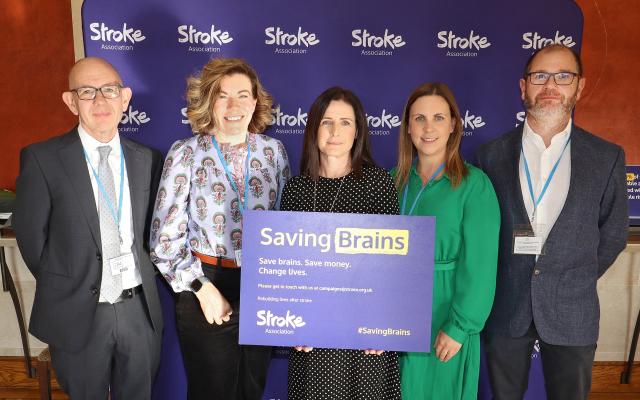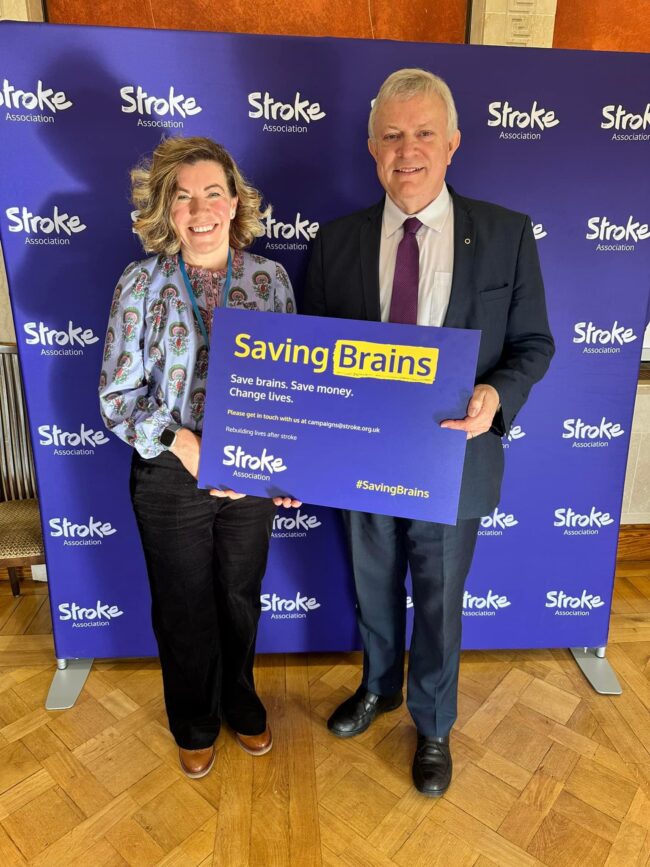
Dr Ivan Wiggan, Clodagh Dunlop, Paula Bradshaw MLA, Dr Gillian Hinchey and Dr Ian Rennie
The charity says it is vital that it is available for everyone who needs it no matter when they have their stroke.
The revolutionary procedure – where clots are plucked from the brain – can save patients from severe disability or death and is most effective within six hours.
But currently it is only available between 8am and 6pm, so anyone admitted outside these hours would have to wait until the following morning.
Every minute a stroke is left untreated 1.9 million brain cells die, so the delay could have devastating consequences.
During the event, politicians got the chance to hear from clinicians who perform thrombectomy as well as meet and hear from stroke survivors who have benefited from it.
Clodagh Dunlop, from Magherafelt in Co. Derry, had a brain stem stroke which initially left her with locked-in syndrome in April 2015. It left her completely paralysed and she was only able to communicate by using her eyes.
She received the stroke treatment thrombectomy, which she says saved her life.
“The team came in out of hours on a holiday to perform my thrombectomy,” said Clodagh. “If they hadn’t, I would be dead. The team gave me life!”
In September, the charity handed in a 3,500 name petition which calls on the Health Minister to deliver on the Department of Health Stroke Action Plan commitment to make thrombectomy available 24/7 by the end of this year.
Alasdair O’Hara, Northern Ireland Director at the Stroke Association, said; “it was a pleasure to welcome MLAs, stroke survivors and clinicians to our Stormont event.
“Two years ago on World Stroke Day, we held a similar reception in this room and celebrated the Stroke Action Plan commitment to deliver an expansion to a 24/7 thrombectomy service by the end of 2024.

Clodagh Dunlop with SDLP MLA Patsy McGlone at World Stroke Day event at Stormont
“We know HSC resources are stretched, but that only strengthens the need to deliver this commitment as we know thrombectomy saves brains, saves money and saves lives – it can be the difference between a patient walking out of hospital or leaving in a wheelchair.
“Each patient who receives thrombectomy saves the NHS £47,000 on average in ongoing care over five years.”
Tags:




